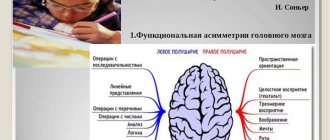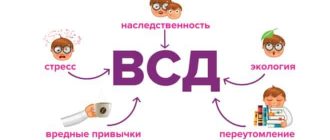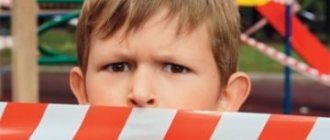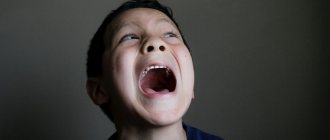Anxiety in children, being an individual psychological feature, is expressed in a tendency to worry in a variety of situations. In children, it is necessary to differentiate anxiety from anxiety. Anxiety itself almost always manifests itself without significant reasons and does not depend on a specific situation. An anxious state is inherent in a child’s personality in any type of activity.
Anxiety refers to episodic manifestations of excitement and restlessness, while anxiety is a stable state. For example, it happens that a child is worried when answering at the blackboard or before speaking at a party, but this anxiety is not always expressed, and sometimes in such situations he remains calm. This is a manifestation of anxiety. If the state of anxiety is constantly repeated in various situations (while answering at the board, communicating with strangers), then this indicates the presence of anxiety.
When a child is afraid of something specific, they talk about the manifestation of fear. For example, fear of enclosed spaces, fear of heights, fear of the dark.
Causes of anxiety in children
Anxiety in children is caused by the following reasons:
- disturbances in relationships between children and adults;
- improper upbringing of children (parents often want and demand from their children what they cannot do: good grades, ideal behavior, showing leadership among children, winning competitions).
The excessive demands of parents on their offspring are often associated with personal dissatisfaction, as well as the desire to realize their own dreams in their child. Sometimes inflated demands are associated with other reasons, for example, one of the parents is a leader in life and has achieved material well-being or a high position, and does not want to see a “loser” in their child, making inflated demands on him.
Often, parents themselves have increased anxiety and their behavior sets the baby up for anxiety. Often, parents, trying to protect their child from imaginary or all real threats, create in him a feeling of defenselessness and inferiority. All this does not affect the normal development of the baby and prevents him from fully opening up, causing anxiety and fear even in simple communication with adults and peers.
How to help an anxious child?
The child constantly experiences anxiety and fear, lacks self-confidence, has extremely low self-esteem, and cannot control his emotions. Unfortunately, it is impossible to solve the problem of increased anxiety; parents, together with a psychologist, must work on this every day.
Raising self-esteem
When a child is confident in his abilities, understands his uniqueness and value, he is less afraid of the future, because he is in complete control of the situation. Call your child by name more often, praise him for any successes, even small ones, and emphasize his strengths. It is important that other people hear your approval, then the child will feel more significant in society.
- Set up a small stand at home where you will celebrate your child's achievements. What can you hang there? Certificates and medals for participation in competitions, tests with good grades, successful drawings.
- If your child has achieved something or excelled somewhere, share the story of his success with other people so that he can hear it. Do it sincerely.
- Achievements can also be marked with special star stickers. Children love to collect things, and the child will be happy to join in the game.
Do not say harsh or hurtful words to your child. Don't criticize him in front of strangers. If a child commits a bad act, do not force him to apologize, this will have the opposite effect. It’s better to talk to him, find out the motives for his action, most likely he will draw the necessary conclusions himself.
Relieving emotional stress
Anxious children respond well to physical contact. Hug him more often, pat him on the head, on the shoulder, expressing your love, praise and support. Massage also gives you a feeling of safety and peace.
Anxiety in preschool children
It would seem, why should kids worry? They have friends in the garden and in the yard, as well as loving parents.
Childhood anxiety is a signal that something is going wrong in the child’s life, and no matter how adults console themselves and justify this condition, this condition cannot be ignored. Moreover, it doesn’t matter at all whether this applies to a daughter or son, since in preschool age anxiety can arise regardless of the child’s gender.
American psychologist K. Izard gives the following explanation for the terms “fear” and “anxiety”: anxiety is a combination of certain emotions, and one of the emotions is fear.
Fear can develop in an individual at any age interval: for example, children from 1 to 3 years old often have night fears; fears of unexpected sounds most often appear in the 2nd year of life, as well as fear of loneliness and fear of pain associated with fear of medical workers.
From 3 to 5 years old, children have widespread fears of darkness, loneliness, and confined spaces. The fear of death usually becomes the main experience at the age of 5-7 years.
How to relieve anxiety in a child? This question interests many concerned parents.
Relieving anxiety in children - advice from a psychologist:
- You need to get a pet: a hamster, a kitten, a puppy and entrust it to your child, but you should help the baby in caring for the pet. Caring for an animal together will help create trust and partnership between the baby and parents, which will help reduce anxiety levels;
- Relaxation breathing exercises will be useful to relieve anxiety;
- If, however, anxiety is stable and persists for no apparent reason, then you should seek help from a child psychologist to relieve this condition, since even minor childhood anxiety can subsequently cause serious mental illness.
This adult life
As the child grows up, the world around him opens up. Getting to know this world can sometimes be traumatic. The most severe traumatic circumstance is the death of a relative or beloved pet. For the first time, a child begins to think about the finitude of life – his own and his parents’, and this discovery is truly frightening.
Psychologists also include stressful situations for seven-year-olds as having suffered a long-term illness, changing their place of residence or study, divorce of parents, breaking into an apartment... Children who have experienced a strong shock project their fears into the future and anxiously expect a repeat of what happened.
Anxiety in primary school children
The ages from 7 to 11 years are filled with fear of not living up to expectations of being a good child and being left without respect and understanding from adults. Every child has certain fears, but if there are a lot of them, then they talk about manifestations of anxiety.
At the moment, there is no single point of view regarding the causes of the development of anxiety, but most scientists attribute a violation of parent-child relationships to one of the reasons. Other researchers of this problem attribute the occurrence of anxiety to the presence of an internal conflict in the child, which is caused by:
- conflicting demands made by adults, for example, parents do not allow their child to go to school due to poor health, and the teacher reprimands for absence and puts a “D” in the journal in the presence of other peers;
- inadequate requirements, often exaggerated, for example, adults constantly tell their offspring that he must get “A’s” and be an excellent student and cannot accept the fact that he is not the best student in the class;
- negative demands that humiliate the child’s personality and put her in a dependent position, for example, the teacher says: “If you tell me which of the children behaved badly in my absence, then I will not tell mom that you got into a fight.”
Psychologists believe that in preschool and primary school age boys are the most anxious, and girls become anxious after the age of 12.
At the same time, girls worry more about relationships with other people, while boys are more concerned about punishment and violence.
Girls, having done an “unseemly” act, worry that the teacher or mother will think badly of them, and their friends will stop playing with them. In the same situation, boys are likely to fear that adults will punish or beat them.
Anxiety in children of primary school age usually manifests itself 6 weeks after the start of the school year, so schoolchildren need a 7-10-day rest.
The anxiety of children of primary school age depends largely on the level of anxiety of adults. High anxiety of a parent or teacher is passed on to the child. In families where friendly relationships reign, children are less anxious than in those families where conflicts often arise.
Psychologists have discovered an interesting fact that after parents divorce, the child’s anxiety level does not decrease, but increases.
Psychologists have found that children's anxiety increases if adults are not satisfied with their financial situation, their work, and living conditions. It is possible that in our time it is for this reason that the number of anxious children is growing.
Parental education, namely the authoritarian style in the family, also does not contribute to the child’s inner peace.
Psychologists believe that educational anxiety is formed already in preschool age. Often this is facilitated by the teacher’s authoritarian style of work, inflated demands, and constant comparisons with other children.
Often, in the presence of a future schoolchild, some families have conversations throughout the year about choosing a “promising” teacher and a “worthy” school. Often this concern of parents is passed on to their offspring.
In addition, adults hire teachers for children who spend hours doing tasks with them. How does the baby react to this?
The child’s body, not yet ready and not yet strong enough for intensive learning, cannot stand it and begins to get sick, while the desire to learn disappears and anxiety about the upcoming learning rapidly increases.
Childhood anxiety can be associated with mental disorders, as well as neurosis. In these cases, you cannot do without the help of medical specialists.
Knowledge is power?..
It is difficult to protect our inquisitive children from today's flow of information. So it turns out that what you see as a “horror movie” - a TV story about a plane crash or a video on the Internet with elements of cruelty - makes a strong impression, which is then difficult to get rid of. And people always tend to fear what they cannot find an explanation for. What can we say about children with their rich imagination? “Mom, don’t go!”, “Don’t turn off the light!”, “Leave the door open!” - you can often hear from little cowards. Such situational anxiety appears in children with a certain psychotype - they are vulnerable, sensitive, melancholic, suspicious and impressionable.
Diagnosis of anxiety in children
Anxious children are characterized by excessive anxiety; often they fear not the event, but the anticipation of the event itself. Children tend to feel helpless; they are afraid to play new games or take on unfamiliar activities.
Restless kids have high demands and are very self-critical. Their level of self-esteem is low, they think that they are worse than others in everything, that they are stupid, ugly, clumsy. Approval and encouragement from adults in all matters will help relieve anxiety in such children.
Anxious children are also characterized by somatic problems: dizziness, abdominal pain, throat spasms, difficulty shallow breathing, headaches. When anxiety occurs, children often experience a lump in the throat, dry mouth, weakness in the legs, and a rapid heartbeat.
An experienced educator, psychologist, or teacher can identify an anxious personality by observing a child on various days of the week, as well as during free activities and learning, and in communication with other peers.
A portrait of an anxious child includes the following behavioral signs:
- intense looking at everything that is around;
- timid, silent behavior, awkward sitting on the edge of the nearest chair.
It is more difficult for a psychologist to work with anxious individuals than with other categories of “problem” children, since this category keeps its problems to itself.
To understand the baby, as well as to find out what exactly he is afraid of, parents, educators, and teachers need to fill out a questionnaire. The situation regarding anxious children's personalities will be clarified by the answers of adults, and observations of the baby's behavior will refute or confirm the assumption.
The following criteria are identified for determining increased anxiety:
- muscle tension;
- constant anxiety;
- sleep disorders;
- the impossibility and difficulty of concentrating on anything;
- irritability.
A baby is classified as anxious if one of the listed signs is constantly present.
Weather in the house
If a child is raised in a dysfunctional family (adults constantly argue, or abuse alcohol, or live separately...), he will most likely show signs of increased anxiety.
Article on the topic
How to determine a child's readiness for school. Psychologist's advice
It’s sad when parents, too busy with their own problems, do not notice warning signs in their child’s behavior. It would be good if in such a situation a child psychologist at school or kindergarten manages to notice the problem in time and talk with the parents.
Signs of anxiety
Anxiety is manifested not only by these fears. They say about her:
- pain in the lower abdomen
- headache
- nervous tic (twitching of eyelids, hands, neck)
- problems falling asleep,
- nightmares
- refusal to eat
- bed-wetting
- reluctance to go to kindergarten or school
- nervous, withdrawn behavior not previously characteristic
- frequently asked clarification questions (“Where are we going?”, “Who will be there?” “What will they do there?”)










